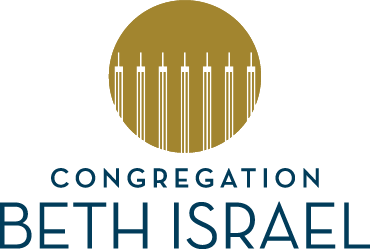“Judaism Loves Gray Areas”

“Judaism Loves Gray Areas”
From the desk of Rabbi David Lyon
In Genesis 11, just after the story of Noah and the ark, we read about the Tower of Babel. It’s a short story that tells about the people living in the land of Shinar. They spoke only one language, which enabled them to cooperate in a project to build a tower to the heavens “to make a name for themselves.” Torah tells us, “Then God came down” to see what the people were doing. In the end, God confounded their language and scattered them to the four corners of the earth. By confounding their language, they could no longer succeed in building the tower. The word Babel is at the root of our modern word “babble,” which means to speak unintelligibly.
Post-biblically, the rabbis asked, “Why did God have to come down to see what the people were doing?” After all, traditional Judaism taught that God was all-powerful, all-knowing, and all-present.
God didn’t need to come down to see what the people were doing. The rabbis concluded that just as Torah is written in human language for our understanding, so the purpose in God’s coming down must be to teach a human lesson. The rabbis explained that God came down to see for God’s-self what the people were doing before passing judgment. Only then did God confound their language and scatter them across the earth.
God’s role was not only to act as judge, but also as teacher. We learn from God’s role that we must see for ourselves before passing judgment, too. But, unlike God, Who knows our deeds and our intentions, we can only know one’s deeds. We cannot know what’s in one’s heart without knowing their deeds.
In the past, it was easier to assess for ourselves what we could know. There were two newspapers in Houston, one in the morning and one in the evening. There were three television channels and regular nightly news that informed people watched religiously. News anchors, like Walter Cronkite, were sources of reliable news and credible insights. As our world has grown, we might lament the plethora of news sources and online information; but, we can still remain committed to the Torah lesson to see for ourselves what we can know before passing judgment. Discernment is required of us to know what we can with credibility; and, not to pass judgment prematurely or in haste.
Current polarized times would suggest otherwise, but Judaism thrives in gray areas. It was designed for it. In Talmud, we learn that if an argument is “for the sake of heaven,” that is, for a larger and greater purpose, then there’s merit in both points-of-view. If that holds true and we can embrace this Jewish lesson, then there’s merit in what we can learn from each other if — if — we come down from our own proverbial high places and see for ourselves what others are doing. With two ears and one mouth, we can listen more and speak less, we can find some common ground on which to stand, and we can speak civilly to each other about a future that we are fated to share.
The Torah lesson is as true about national issues as it is about personal issues. Our obligation is to engage in proper dialogue and debate with goals to reach beyond ourselves and our time. Gray areas require discernment and wisdom. Judaism is perfectly suited to the task. I urge you to find a place away from the polarized edges where life appears to be black or white. Closer to the middle, we find that gray areas are rife with insights, new understandings, and faith in what we need to do together.
L’Shalom,
![]()
